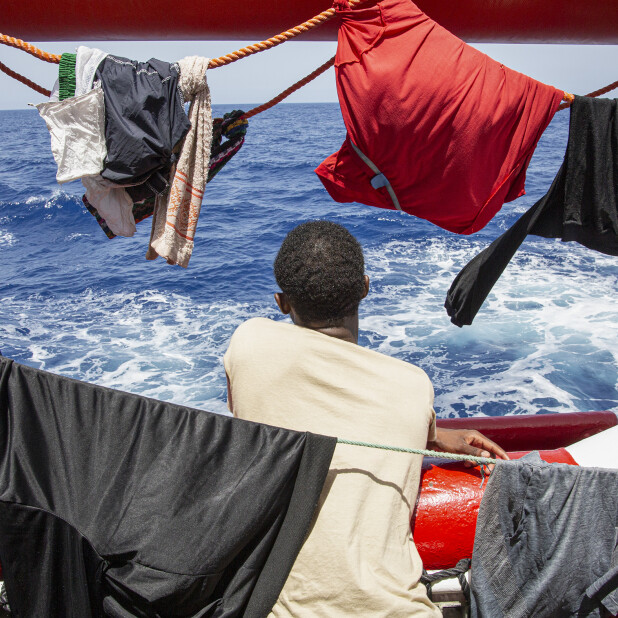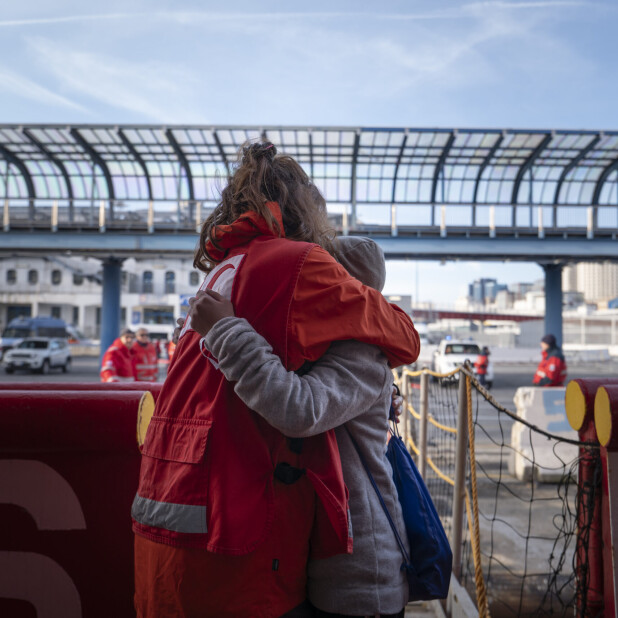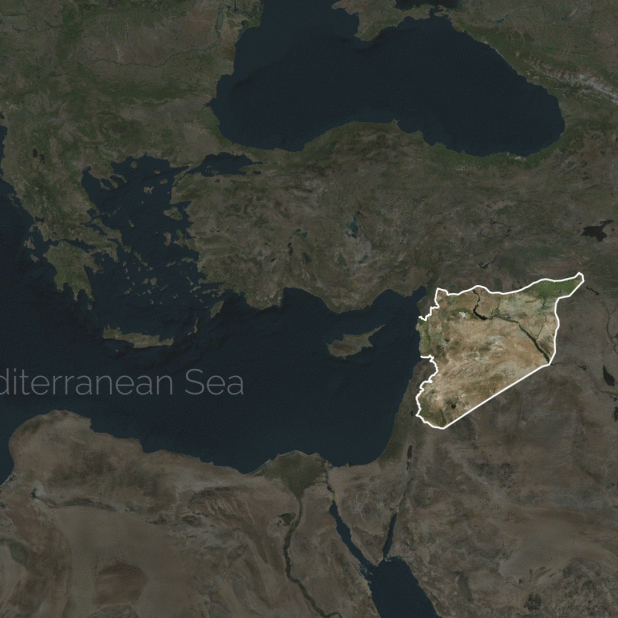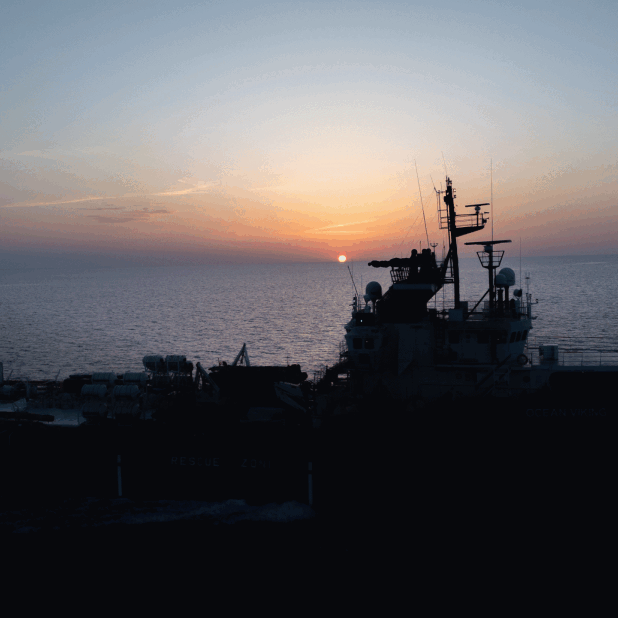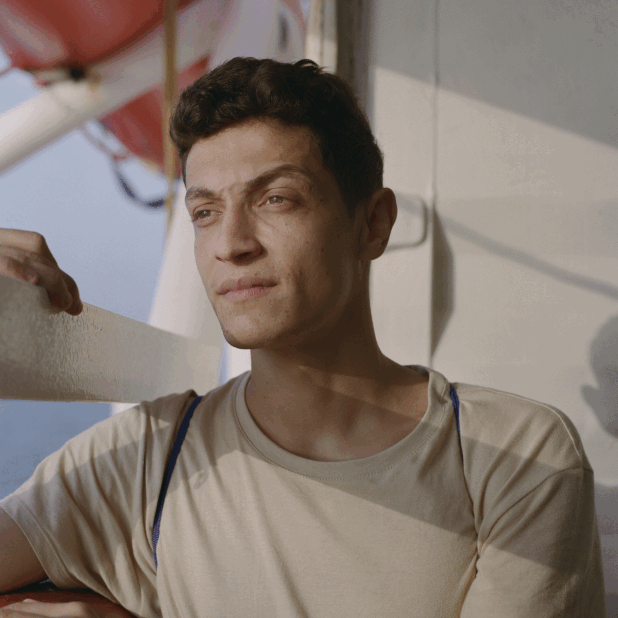
SOS MEDITERRANEE ensures transparency of all operations at sea. SOS MEDITERRANEE documents every step of each search and rescue operations on an open-source website. Communication with the authorities and observations from the ship are logged within 48 hours and more information on the legal framework of search and rescue operations at sea can be found here: onboard.sosmediterranee.org
Additionally, SOS MEDITERRANEE has embedded over 250 independent journalists at sea since 2016.
Note: This article intends to shed light on the maritime legal framework in which SOS MEDITERRANEE conducts Search and Rescue operations in the central Mediterranean. It is not intended to be exhaustive.
Lifesaving services at sea: a long-standing maritime tradition and obligation
Our operations at sea are based on maritime law and international conventions (such as SOLAS 1974, SAR 1979, UNCLOS 1982). The United Nations Convention on the Law of the Sea of 10 November 1982 states that: “Every State shall require the master of a ship flying its flag, in so far as he can do so without serious danger to the ship, the crew or the passengers: (a) to render assistance to any person found at sea in danger of being lost”. (Article 98 (1)). The duty to render assistance at sea is a long-standing maritime tradition and peremptory norm that has been translated into international law.
Coordination of Search and Rescue operations: a lost legal obligation in the central Mediterranean
During our operations at sea, SOS MEDITERRANEE seeks coordination for all search and rescue operations from the relevant maritime authorities, always keeping those authorities informed at all steps.
Maritime rescue coordination centres are the ones responsible for determining who we cooperate with during a rescue operation, if and when to transfer rescued people from other ships, and in which port to disembark them. Since 2018, following the establishment of the Libyan Search and Rescue Region under the responsibility of the Tripoli Rescue Coordination centre, SOS MEDITERRANEE has been experiencing an ever-worsening lack of coordination and information-sharing from maritime authorities.
Since the Libyan Joint Rescue Coordination Centre formally in charge of coordinating search and rescue operations in the Libyan Search and Rescue Region (SRR) does not answer to SAR NGO requests for coordination, the Bridge of the Ocean Viking keeps the most able to assist maritime authorities informed of search and rescue operations. These authorities are the Italian and Maltese ones.
The Ocean Viking engages in search and rescue operations not only in the Libyan Search and Rescue Region, but in the whole central Mediterranean, part of which belongs to the Italian or Maltese Search and Rescue Regions. Although coordination has been lacking in the past years, there are still to this day rare cases in which the Ocean Viking is instructed by maritime authorities, including the Italian Coast Guard, to engage in a search for or proceed towards a distress case or proceed to a port of disembarkation.
No discrimination in sea rescue
As stated by the SOLAS convention, the obligation to provide assistance to people in distress “applies regardless of the nationality or status of such persons or the circumstances in which they are found.” (Reg 33 SOLAS Convention, 1974 (adopted on 20 May 2004).
SOS MEDITERRANEE rescues people in distress at sea because it’s a legal obligation as well as a moral imperative.
Designating swiftly a place of safety to survivors: an obligation for coastal States
According to maritime conventions, a rescue is only completed when the survivors have been disembarked in a place of safety (SOLAS / Chapter 5 / Regulation 33). The SOLAS Convention of 1974 and the SAR Convention amendments of 2004 state that “in every case” a place of safety must be “provided within a reasonable time”. Furthermore, “cooperation and coordination” within contracting governments are prescribed to ensure “that survivors assisted are disembarked from the assisting ship and delivered to a place of safety”.
A place of safety is defined as “a place where the survivors’ safety of life is no longer threatened and where their basic human needs (such as food, Shelter and medical needs) can be met. (…)” [Annex to the 1979 SAR Convention, 1.3.2.].
Libya cannot be considered a place of safety
The above criteria required for a place of safety do not apply to Libya. Various reports by Human Rights Watch, the UN Support Mission in Libya and the UN Human Rights office show that migrants and refugees are exposed to large-scale human rights abuses in Libya, including arbitrary detention, torture, forced labour and sexual exploitation. In addition, UNHCR repeatedly reiterates that Libyan cannot be considered as a place of safety for the purpose of disembarkation following rescue at sea.
Cooperation between States enshrined in legal requirements
The SAR and SOLAS Conventions impose an obligation on States to cooperate and coordinate to ensure that shipmasters are allowed to disembark rescued persons to a place of safety. In order to fulfil this objective, they impose inter-related obligations on three categories of States: coastal States, Search and Rescue (SAR) States and all States concerned. The SAR State where a rescue occurred takes the lead in ensuring coordination and cooperation among Contracting Parties, so that mariners who had provided assistance are promptly relieved. The Conventions consequently placed an obligation on all Contracting Parties to coordinate and cooperate to ensure that masters of ships providing assistance were released from their obligations with a minimum of deviation from the ship’s intended voyage.
When searching for boats reported in distress, as well as during rescue operations, despite all attempts to seek coordination, the Ocean Viking is quasi-systematically left without answer from Libyan maritime authorities. In the face of the silence, the Ocean Viking is left with no other solution than to seek assistance to the most able to assist Maritime Rescue Coordination Centers, which are Italy and Malta.
https://www.sosmediterranee.org/glossary/survivors/
Photo Credits: Claire Juchat / SOS MEDITERRANEE

